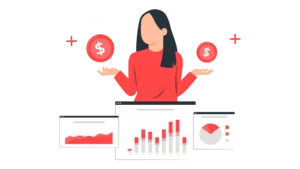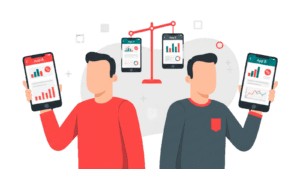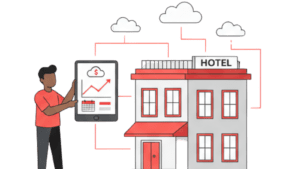Table of Contents
Updated : Jun 24, 2025
Data-driven decisions can transform your business and boost your revenues. As a hotel owner or manager, understanding the significance of a hotel revenue manager is crucial. These professionals are like the secret weapon in your arsenal, using data from various sources such as booking trends, market analysis, and competitor pricing to optimize your hotel’s performance. Imagine having the power to predict guest behavior and adjust your pricing strategy accordingly—this is what a skilled hotel revenue manager does. By leveraging this wealth of information, you can enhance your revenue streams and ensure your hotel’s success in an ever-competitive market.
What Is Revenue Management in a Hotel ?
When you think about revenue management in the hotel industry, picture it as a strategic puzzle that involves maximizing your hotel’s profitability by selling the right room to the right customer at the right time and price. As a hotel owner or manager, understanding this concept is crucial to boosting your profits. Essentially, revenue management is about balancing supply and demand while optimizing your pricing strategies.
Let us understand with an example;
Imagine you have a beautiful beachfront hotel. Seasonality impacts revenues. During peak season, demand will naturally be high. A savvy hotel revenue manager knows this is the perfect time to adjust room rates to reflect the increased demand. Conversely, during off-peak times, you might offer special promotions or packages to attract guests. This dynamic pricing is a core component of revenue management and can greatly impact your bottom line.
Let’s say you notice a trend where bookings spike during local events or festivals. By analyzing past data and forecasting future trends, you can adjust your pricing strategies accordingly. This might mean raising prices slightly during high-demand periods or offering early-bird discounts to fill rooms in advance.
PriceLabs & Revenue Management

PriceLabs helps independent hotels like yours optimize pricing with data-driven automation, ensuring you’re never underpriced or leaving money on the table. With easy setup, seamless PMS integration, and full pricing control, you get more revenue with less effort.
- Hotels using dynamic pricing see up to 18% higher RevPAR in their first year.
- Smart automation adjusts prices daily based on demand and competition.
- Hotels can stay ahead of the market with real-time competitor insights.
By embracing the principles of hotel revenue management, you’re not just reacting to market changes; you’re proactively shaping your hotel’s financial success. It’s about making informed decisions that align with your business goals while enhancing guest satisfaction.
The Role of a Revenue Manager in a Hotel
As a hotel owner or manager, understanding the pivotal role of a Hotel Revenue Manager is crucial to maximizing your revenues. Let’s break down the key responsibilities.
Analyzing Market Trends
Your Hotel Revenue Manager is your go-to expert for analyzing market trends and understanding demand patterns. By keeping an eye on local events, competitor pricing, and seasonal fluctuations, they ensure your pricing strategy aligns with market conditions. Tools like STR (Smith Travel Research) can provide valuable data insights to help them make informed decisions.
Dynamic Pricing Strategies
Setting the right price for your hotel rooms is an art and science combined. A Revenue Manager uses dynamic pricing strategies to adjust room rates in real-time based on demand and supply factors.
PriceLabs is an essential tool in this context.
A hotel revenue manager is constantly adjusting rates, tracking competitors, and optimizing for demand. But manual processes and outdated tools make it harder than ever to stay ahead.
PriceLabs makes pricing effortless:
- See what competitors are charging so you can price smarter.
- Automate rate updates based on demand, seasonality, and occupancy.
- Easily adjust prices in bulk across all units in seconds.
Forecasting and Budgeting
Accurate forecasting is vital for planning future revenues and expenses. Your Revenue Manager will develop forecasts based on historical data, current market conditions, and future trends. This helps in creating realistic budgets that guide your financial planning. Tools like Revinate can assist in gathering guest feedback and predicting future booking trends.
Optimizing Distribution Channels
Managing where and how your rooms are sold is another critical responsibility. Your Hotel Revenue Manager ensures that all distribution channels—like OTAs (Online Travel Agencies), direct bookings, and GDS (Global Distribution Systems)—are optimized for maximum revenue generation. Channel management software like Cloudbeds can streamline this process by providing real-time updates across all platforms.
Revenue Reporting and Analysis
Regular revenue reporting helps in tracking performance against targets. Your Revenue Manager will analyze these reports to identify areas of improvement and success. Tools like ProfitSword can offer comprehensive revenue management analytics, giving you a clear picture of your financial health.
PriceLabs supports Competitive Benchmarking & Market Intelligence
How ?
- Hotel Data Tab – Monitor the pricing of nearby hotel-style properties, analyze historical rate trends, and gain insights into market demand.
- Neighborhood Data Tab – Analyze short-term rental pricing trends and competitive positioning within your local market.
- Hotel Comp-Set Pricing – Benchmark your rates against a custom competitor set of similar hotels.
Tricks That Revenue Managers Use to Boost Revenues

1. Segmentation of Customer Base
Understanding different customer segments allows you to tailor your offerings and marketing strategies effectively. A hotel revenue manager often segments guests by purpose of travel, booking channel, or demographic.
How can you do it?
Analyze past booking data to identify trends and patterns. Create targeted marketing campaigns for each segment and adjust your services to meet their specific needs.
2. Optimizing Distribution Channels
Efficiently managing distribution channels ensures that your rooms are sold through the most profitable avenues. A hotel revenue manager evaluates the cost versus benefit of each channel.
How can you do it?
Regularly review your distribution channels’ performance. Prioritize direct bookings through your website by offering exclusive deals and ensuring a seamless booking experience.
3. Utilizing Forecasting Tools
Accurate forecasts allow for better planning and decision-making. Hotel revenue managers use forecasting tools to predict demand and optimize inventory management.
How can you do it?
Invest in advanced forecasting software that analyzes historical data and market trends. This will help you anticipate periods of high demand and adjust your strategies accordingly.
4. Implementing Upselling Techniques
Upselling enhances guest experience while increasing revenue per booking. A hotel revenue manager trains staff to identify opportunities for upselling additional services or room upgrades.
How can you do it?
Encourage front desk staff to offer room upgrades at check-in or promote add-ons like spa packages during the booking process. Tailor these offers based on guest preferences.
Transform your hospitality approach today
Discover actionable strategies tailored for small hotel owners and managers creating unforgettable stays for your guests & expanding revenues for your hotel!
Start your 30-day FREE trial now!5. Effective Inventory Management
Proper inventory management ensures optimal room availability across all channels. A hotel revenue manager balances overbooking risks with maximizing occupancy rates.
How can you do it?
Implement a robust property management system that allows for real-time inventory updates across all platforms, minimizing double bookings and ensuring availability accuracy.
6. Fostering Strong Relationships with OTAs
While direct bookings are ideal, online travel agencies (OTAs) play a crucial role in visibility and reach. A hotel revenue manager maintains strong partnerships with OTAs.
How can you do it?
Negotiate favorable terms with OTAs and ensure your property is featured prominently on their platforms. Maintain updated listings to attract potential guests effectively.
7. Enhancing Guest Experience
Exceptional guest experience leads to repeat business and positive reviews, indirectly boosting revenue.
How can you do it?
Train staff in customer service excellence, personalize guest interactions, and promptly address feedback or complaints to foster loyalty and encourage referrals.
8. Creating Attractive Packages
Bundling services into attractive packages can increase perceived value while boosting overall spend per guest.
How can you do it?
Develop packages that include meals, activities, or local tours at a discounted rate compared to purchasing separately, appealing to both leisure travelers and families. Plus have something for travelers looking for cultural escapes. Eco tourism is also boosting.
9. Utilizing Social Media Marketing
Social media is an effective channel for reaching potential guests and promoting special offers or events at your hotel.
How can you do it?
Engage with followers by sharing engaging content about your property, upcoming events, or local attractions; run targeted ads for specific demographics or regions based on past successful campaigns.
10. Implementing Loyalty Programs
Loyalty programs incentivize repeat stays by rewarding guests for their continued patronage with discounts or exclusive perks over time.
How can you do it?
Design a simple yet rewarding program that encourages guests to book directly through your website; offer points redeemable for future stays or complimentary services during their visit as an added incentive
11. Reviewing Performance Metrics Regularly
Continuous evaluation allows adjustments needed towards achieving long-term goals set forth initially within strategic plans developed collaboratively between ownership management teams alike
How can you do it?
Set up key performance indicators (KPIs) aligned closely alongside overall objectives laid out initially; conduct monthly reviews assessing progress made identifying areas needing improvement moving forward.
Hotel Revenue Trends Every Revenue Manager Needs to Know in 2025
The hotel industry is evolving fast, and staying competitive means adapting to new trends. From AI-driven pricing to direct booking strategies, here’s what’s shaping hotel revenue in 2025.
- Dynamic Pricing is No Longer Optional – Static rates = lost revenue. Hotels using AI-powered pricing strategies see higher ADRs and better occupancy.
- Direct Bookings Are on the Rise – OTA commissions are eating into profits. Hotels focusing on website bookings + smart pricing see better margins.
- AI-Powered Revenue Management is the Future – Revenue managers who embrace automation + real-time data will outpace competitors.
- Hyper-Local Demand Trends Matter More Than Ever – Post-pandemic travel is shifting. Real-time competitor tracking + market demand insights are key.
- Hotels Must Balance Tech + Personalization – Smart tech should enhance guest experiences, not replace them.
Start using AI-driven pricing with PriceLabs and see the impact.
Way Forward
The role of a hotel revenue manager is not just about crunching numbers; it’s about understanding market trends, anticipating guest needs, and making strategic decisions that drive profitability. Moving forward, keep honing these skills, stay updated with industry trends, and foster a culture of continuous learning within your team. By doing so, you’ll not only enhance your capabilities but also ensure your hotel thrives in an ever-competitive market. Embrace these insights, trust your instincts, and watch as your efforts transform into tangible results for your business.







